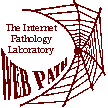- What is the diagnosis?
This is a so-called "cold sore" which is quite common.
- What is the cause of this lesion?
80 to 90% of persons have been infected with herpes simplex virus type 1 (HSV1), which typically affects the oral cavity. In most persons the infection remains latent. In a few persons, particularly young adults, the lesions are prone to appear with stressful conditions including upper respiratory tract infections, exposure to environmental extremes, and allergies.
- What is in the differential diagnosis of this condition?
A very similar lesion is the so-called "canker sore" or aphthous ulcer which is a small, shallow ulceration of similar size and shape, but is not vesicular. It does resemble the ruptured herpetic vesicular lesion. The cause for an aphthous ulcer is not known, but they appear most often in the first two decades of life under conditions of stress. They are sterile, but can become secondarily infected. Recurrent aphthous stomatitis is one of the most common oral problems worldwide.
"Oral thrush" is a larger gray to white patch on the oral mucosa, often the tongue, which is due to Candida infection. This condition most often appears in immunocompromised persons.
The term "leukoplakia" is often applied to any white patch on the oral mucosa. The patches represent thickened squamous epithelium from irritation, though there is little inflammation and typically no pain. The sigificance of leukoplakia is that dysplasia and carcinoma can arise in these areas, particularly if a risk factor such as tobacco use or betal nut chewing is present.
- What is the prognosis?
Both cold sores and canker sores tend to be recurrent. Aphthous ulcers run a variable course and have no specific treatment, except for secondary infections. Thus, any therapy applied to a recurrent lesion that is waning will appear to be effective. Therapies can also have a placebo effect.
- What therapies are available?
For herpetic stomatitis, an antiviral such as acyclovir may help with more serious, prolonged, recurrent cases.
A variety of topical and systemic preparations may be used for palliation of recurrent aphthous stomatitis. Topical agents include over-the-counter preparations with amlexanox, prescribed corticosteroids, or antimicrobial agents for secondary infection. Patients with frequent exacerbations or those with more severe disease unresponsive to topical treatments may require systemic drug therapy that may include corticosteroids, colchicine, dapsone, pentoxifylline, and thalidomide. All therapies are palliative, and none result in permanent remission.



